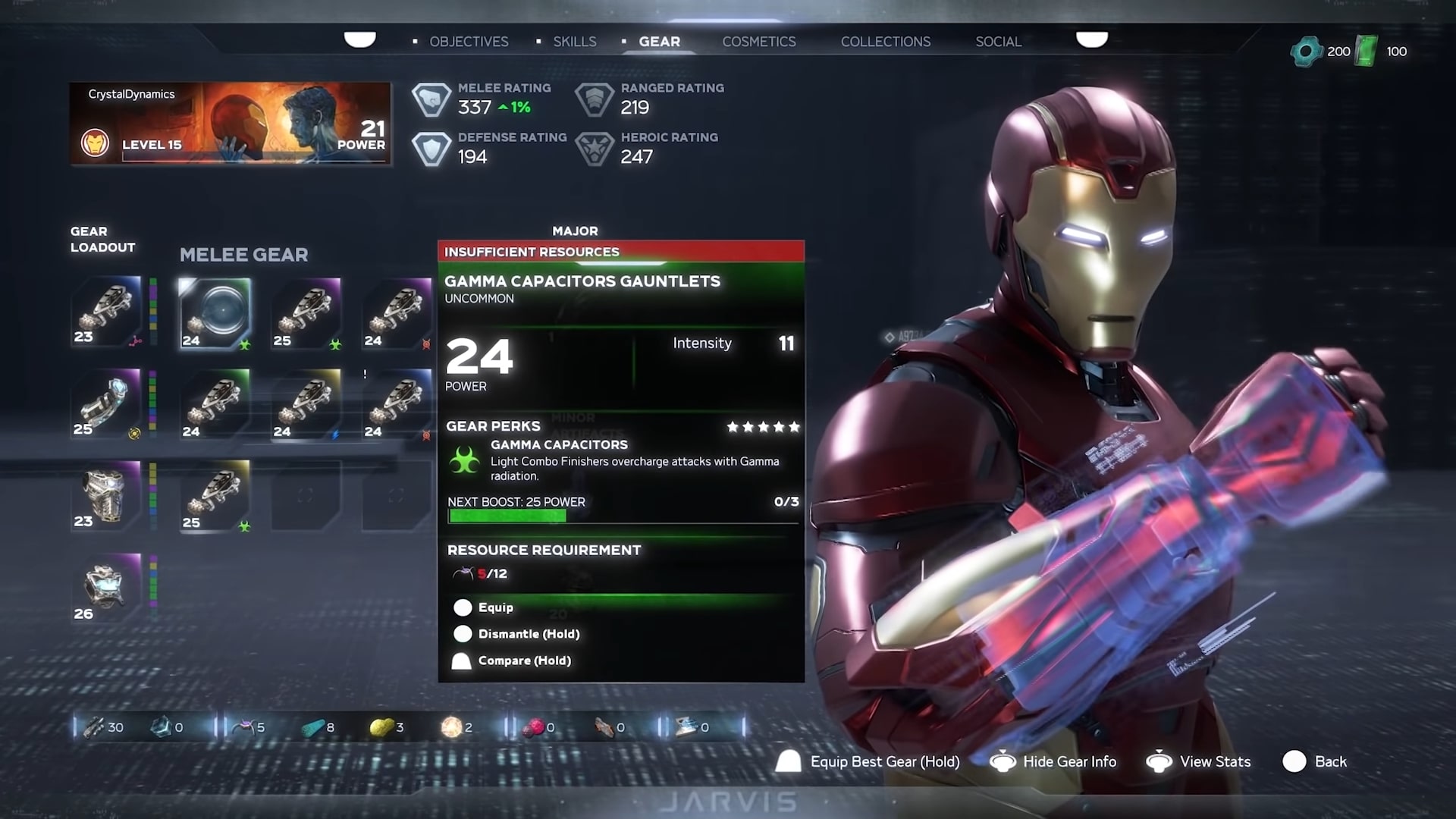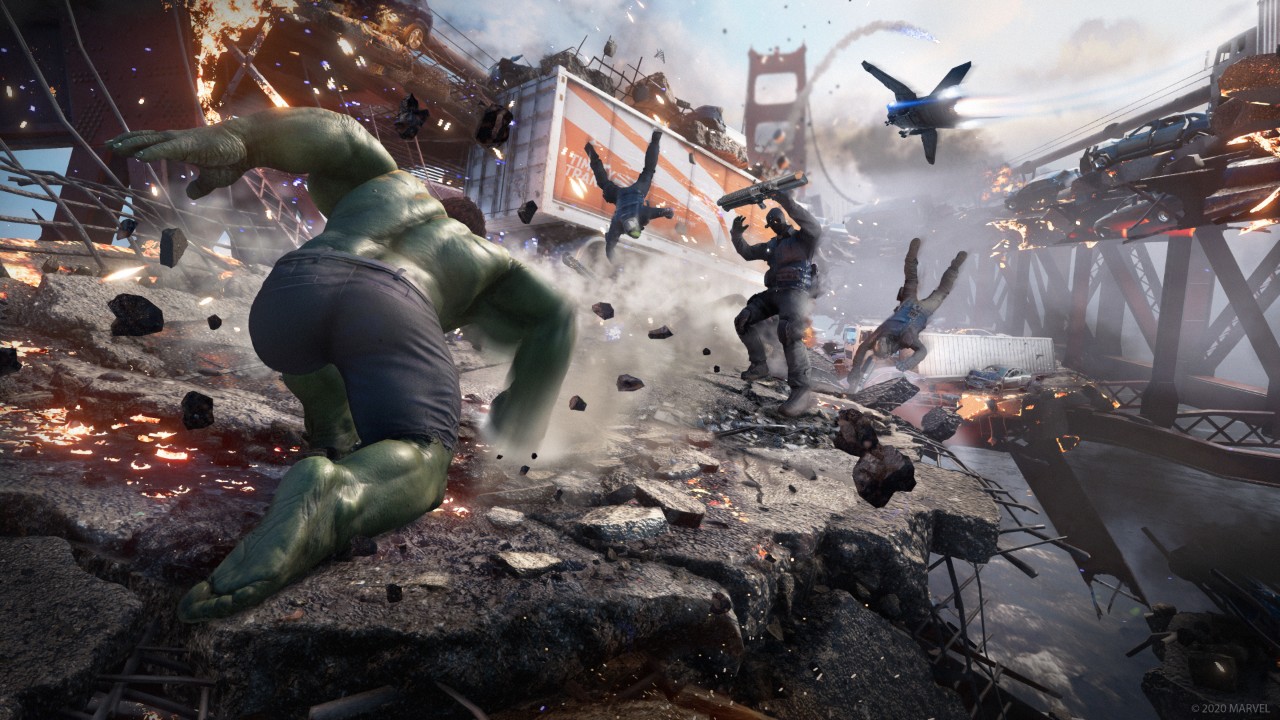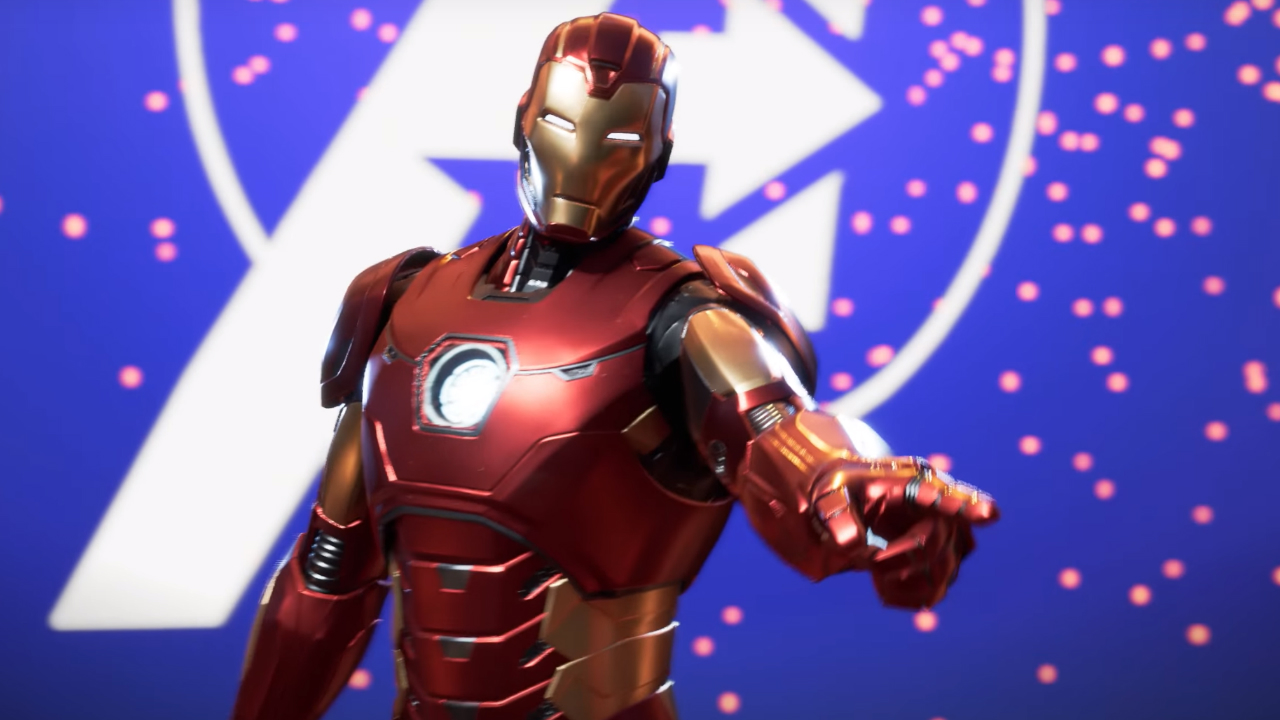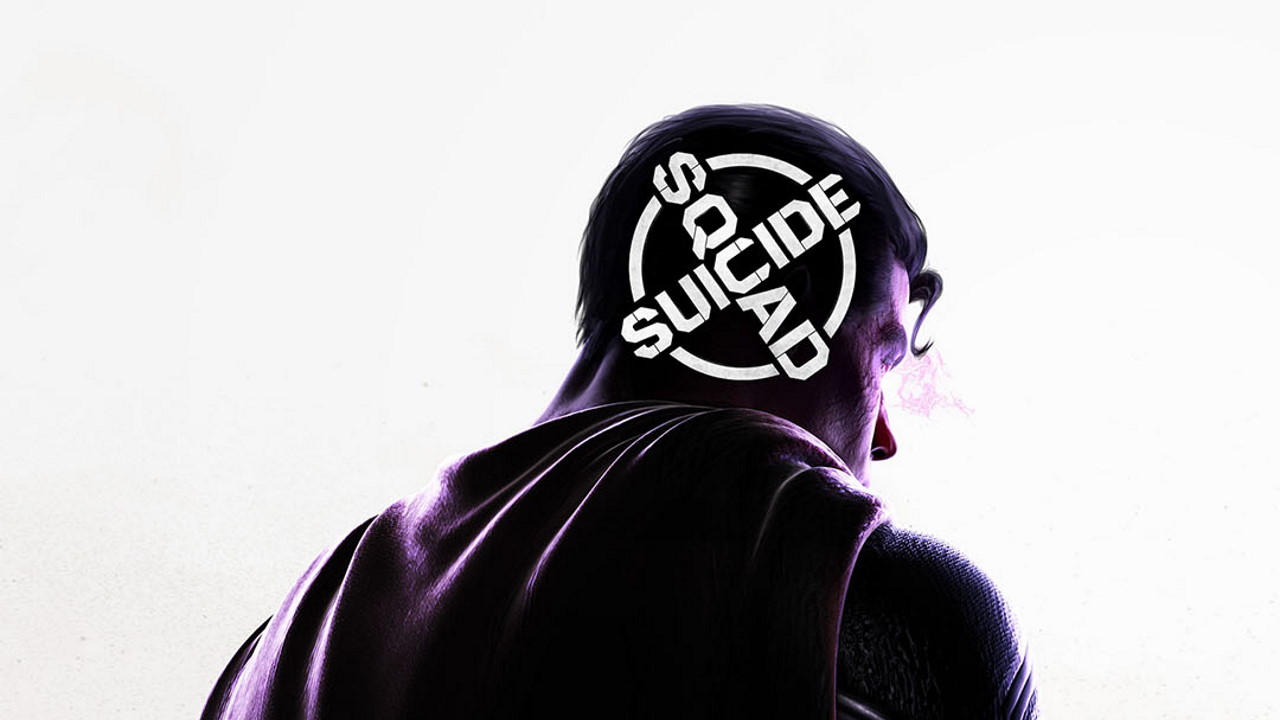Superhero games don't need live services to soar
Marvel's Avengers' reliance on live service structures places too high a premium on the superhero power fantasy

With great power, comes great profitability. That's how the saying goes, right? It does if you're playing Marvel's Avengers, anyway, which is rife with more microtransactions, exclusivity deals, and in-game currencies than a Candy Crush clone. That's because Square Enix's upcoming title isn't so much about re-assembling Earth's mightiest heroes as it is levelling them up, endowing them with a ceaseless pool of procedurally generated gear, and replaying combat scenarios in its ever evolving ecosystem - you know, just as Stan Lee envisioned.
It's another reflection of Destiny's sweeping influence across the games industry, with the Games as a Service (GaaS) structure now the norm for big-budget titles, regardless of genre. But, as reflected by the middling reception to the game so far, Marvel's Avengers' progression obsession is based on a misunderstanding of the immediate appeal of superhero games, and the simple power fantasy of stepping into the shoes of our favourite comic book characters.
With Rocksteady's Suicide Squad game also rumoured to be heading down the GaaS route, it's time to recognise the fact that superheroes don't need live services to sing, and this rising trend is threatening to weaken a genre that was already a perfect fit for the interactive medium.
There was an idea...


Marvel's Avengers has potential, but the beta leaves us with more questions than answers
Of course, for a lot of people, the grind of Marvel's Avengers will be part of its appeal. Destiny is popular for a reason, after all. People love hobbyist games; worlds they can live in, day after day, with or without friends, ticking off checklists, and generally enjoying the comfort of repetition. But that structure isn't meant to be a one-size-fits-all paradigm for every genre that AAA video games have to offer.
GaaS is a format primarily designed to sustain online experiences, for one thing, but we've already seen its ideas applied clumsily to all manner of singleplayer franchises, from Assassin's Creed to Wolfenstein. Sometimes, there's a payoff, usually in the form of free content for players after launch, but for the most part, the live service elements tend to have an anemic effect, watering down previously full-bodied elements of the experience in order to create more room for an illusory sense of progression.
With superhero games, in particular, live service design makes even less sense. I don't want to smash as Hulk so I can eventually upgrade my final piece of Legendary Gamma Sector Nanites (I haven't made that up, by the way). I want to smash as Hulk because I want to smash as Hulk. The enjoyment is the experience of play, not the rewards to come out of it, especially when I'm playing as a character with superpowers.

You don't have to look very far to find evidence of successful superhero games with nary a hint of live service seasoning, either. Insomniac's Spider-Man PS4 game is a single-player experience that, with the exception of its three-part story DLC, starts and ends at its core campaign.
Weekly digests, tales from the communities you love, and more
That campaign understands that playing as Spider-Man is the main attraction, too, and frontloads those immediate joys of swinging, fighting, and quipping through New York City against any concerns for endgame content or monetisation. It's an experience that lives in the moment, rather than looking obsessively towards the future.
Sure, Spider-Man has a standard progression and outfit system that keeps things changing throughout the adventure, but you won't be spending hours of your time bogged down in inventory management, repeating a combat scenario for a single piece of gear, or hunkered over at Peter Parker's desk trying to decode his Spidey-engrams.
Despite its limited monetisation structures, Marvel's Spider-Man is one of the best selling games of all time, making Sony so much money that it quickly snapped up Insomniac soon afterwards. If Avengers wants to be profitable in the long run, then it would be wise to learn from Insomniac's success and delight and enchant the player before asking them to commit to a workload of video game grind.
Heroes for hire

"Marvel's Avengers could end up being the first cautionary tale for GaaS' vampiric assault on the genre."
If anybody understands the potency of a high-quality single-player superhero game, it's Rocksteady. With that in mind, it's possible that the studio's Suicide Squad game won't be quite as live service structured as our worst-case-scenario imagination is fearing.
And with game development continually on the rise, there's absolutely a place for developers to make money from a title beyond its retail sales, but only when handled with a respect for the player's time and investment. I don't see why Rocksteady can't achieve that balance for Suicide Squad, but it's likely we won't know the full details of the game's makeup until far beyond its initial reveal at the DC FanDome schedule this weekend.
For a long time, players could count five terrible superhero games for every good one, but the last two generations seemed to be finally turning that trend in the other direction. Live service development, for all its potential advantages, has emerged as a new disruption to the pattern, leeching superhero games of their moment-to-moment euphoria to make way for gamified grind. Marvel's Avengers could end up being the first cautionary tale for GaaS' vampiric assault on the genre. If that's the case, I can only hope others - including Rocksteady - will heed its lessons.
For more, check out the biggest upcoming games of 2020 and beyond still on the way, or watch below for our hands-on impressions of Marvel's Avengers.
I'm GamesRadar's Features Writer, which makes me responsible for gracing the internet with as many of my words as possible, including reviews, previews, interviews, and more. Lucky internet!



